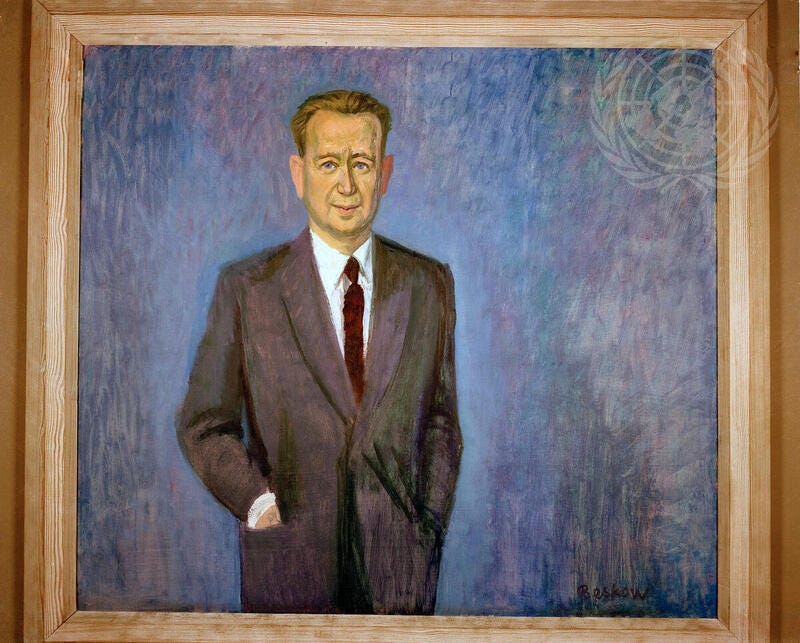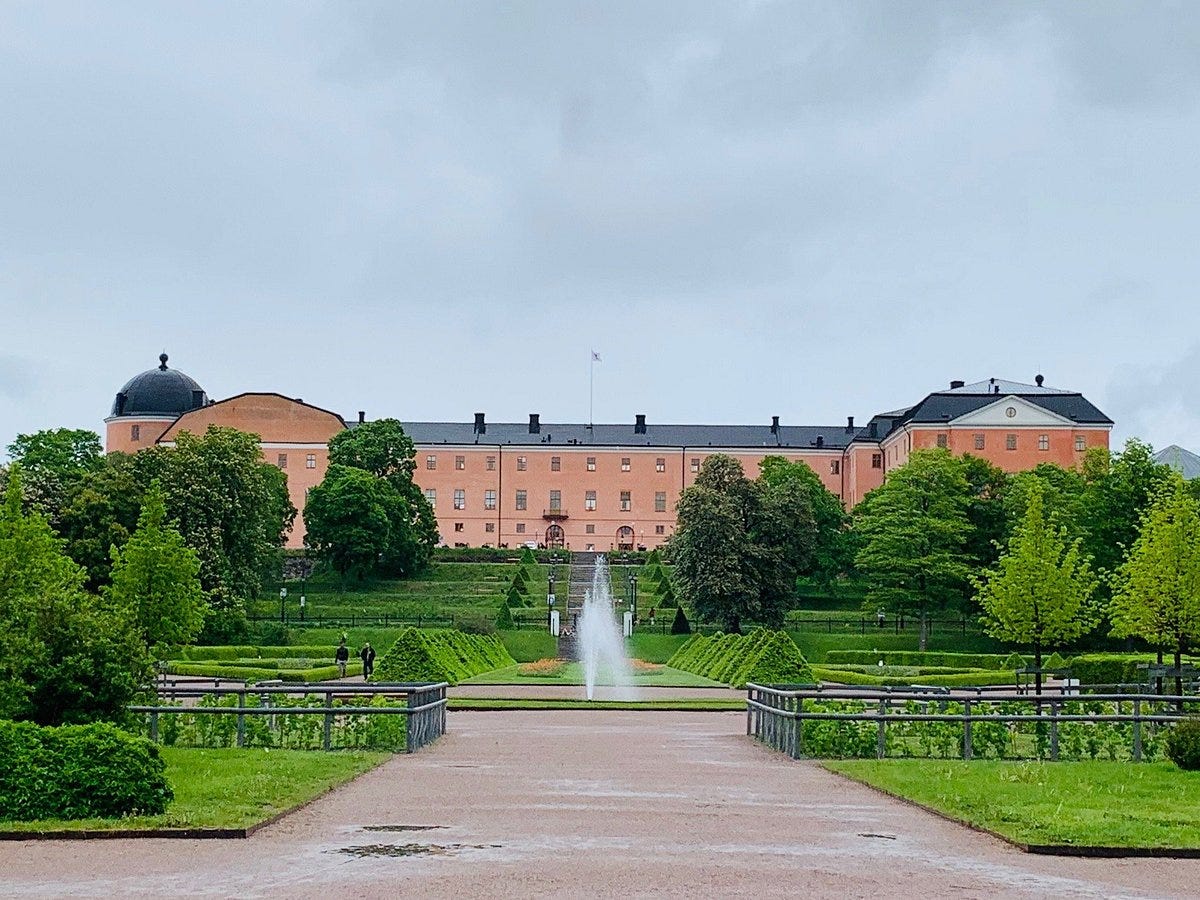The Prayers of That Great Cloud of Witnesses
Dag Hammarskjöld: A Compendium Entry
When I find myself alone with my thoughts, just before a nap, swimming laps, or in the sauna, I pray memorized prayers. The practice gives me time to consider each word and phrase as I speak them slowly to God. I can almost feel them sink deeper and deeper into my heart. Many have gone before us, that great cloud of witnesses, who encourage us with their written prayers. So manyof these prayers are well worth memorizing.
Dag Hammarskjöld is among that crowd who are encouraging us along the way.

Give me a pure heart - that I may see Thee
A humble heart - that I may hear Thee,
A heart of love - that I may serve Thee
A heart of faith - that I may abide in Thee. Amen.
Dag Hjalmar Agne Carl Hammarskjöld (29 July 1905 – 18 September 1961) was a Swedish economist and diplomat who served as the second secretary-general of the United Nations from April 1953 until he died in a plane crash in September 1961. Elected to the role in the U.N. at 47 years of age, he remains the youngest person to have ever held the post.
Hammarskjöld was born in Jönköping, Sweden but spent most of his childhood in Uppsala. His home there was Uppsala Castle. He was the fourth and youngest son of Hjalmar Hammarskjöld, Prime Minister of Sweden from 1914 to 1917.
Dag Hammarskjöld's life and work were significantly influenced by Christian faith and spirituality, particularly through his reading of Christian mystics and his personal quest for spiritual meaning. He engaged deeply with the writings of figures like St. John of the Cross, Thomas à Kempis, and Teresa of Avila. His own spiritual journal, "Markings," reflects a deep exploration of Christian themes of self-surrender, forgiveness, and union with God.
Hammarskjöld didn't view his spirituality as separate from his public life. He believed that Christian principles like forgiveness, love, and self-sacrifice should be integrated into the discourse of public life and diplomacy. He saw his work as Secretary-General of the United Nations as a form of service, a way to embody his faith in the world.
"We are not permitted to choose the frame of our destiny. But what we put into it is ours. He who wills adventure will experience it—according to the measure of his courage. He who wills sacrifice will be sacrificed—according to the measure of his purity of heart."
-Markings1
During his term with the U.N., Hammarskjöld tried to improve relations between Israel and the Arab states, as he mediated between David Ben-Gurion and Gamal Abdel Nasser. In 1955, he visited China to negotiate the release of 11 captured US pilots who had served in the Korean War. He established the U.N. Emergency Force in 1956 and intervened in the Suez Crisis the same year. He is also given credit by some historians for allowing the participation of the Holy See within the UN that year.
On September 18, 1961, Hammarskjöld was en route to negotiate a cease-fire between U.N. Congo forces and the troops under Moise Tshombe. His plane crashed and Hammarskjöld and 15 other passengers were killed.
After Hammarskjöld's death, U.S. President John F. Kennedy said: "I realise now that in comparison to him, I am a small man. He was the greatest statesman of our century."
The structure of his prayer, shorter than Christina Rossetti in our previous post, encourages us to develop our favorite themes and passages of Scripture in our prayers. Again it reads:
Give me a pure heart - that I may see Thee
A humble heart - that I may hear Thee,
A heart of love - that I may serve Thee
A heart of faith - that I may abide in Thee. Amen.
The first line of his prayer reflects Jesus’ 6th beattitude in Matthew 5:8: “Blessed are the pure in heart, for they will see God.”
The second line of his prayer sounds like a theme from 2 Chronicles 7:14 but with a bit of a twist: “…if my people, who are called by my name, will humble themselves and pray and seek my face and turn from their wicked ways, then I will hear from heaven, and I will forgive their sin and will heal their land.”
The third line reflects a theme found in Deuteronomy 10:12: “And now, Israel, what does the Lord your God ask of you but to fear the Lord your God, to walk in obedience to him, to love him, to serve the Lord your God with all your heart and with all your soul…”
The fourth and final line reflects the words of James 1:2-4: “Consider it pure joy, my brothers and sisters, whenever you face trials of many kinds, because you know that the testing of your faith produces perseverance. Let perseverance finish its work so that you may be mature and complete, not lacking anything.”
Application:
Memorize Hammarskjöld’s prayer.
The next time you find yourself alone with your thoughts, recite the prayer, considering each word as you lift your heart to God.
Then, take time to write out some of your favorite verses of Scripture.
Consider how you can shape these passages into a prayer for your journey with Jesus.
Write your prayer out, memorize it, and then pray it.
Dag Hammarskjöld: Further Reading
Hammarskjöld: A Life Paperback –
by Roger Lipsey
Markings by Dag Hammarskjöld
Politics and Conscience: Dag Hammarskjöld on the Art of Ethical Leadership
by Roger Lipsey
Hammerskjöld 1964, p. 63.


